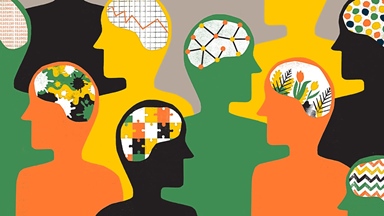Neurodiversity in the workplace
Hello, I'm Andrew Eddy, co-founder and CEO of Untapped Talent. Some of the ways that neurodivergent individuals can add value to the accounting industry include leveraging their skills that they bring. Things like attention to detail, being able to focus for long periods, seeing patterns, being able to think differently.
There are lots of roles that can be seen as being tedious or boring or very rules based, but in fact, they can quite well suit some autistic or neurodivergent individuals. And so where you have these roles that might experience high turnover or difficulty in finding people to do them, they might suit these people down to the ground. So if we can match those roles with this untapped talent pool, then we could generate a heap of value.
The value of diversity
If we have organisations that just employ the same people, if you go out and recruit who you are in the people, you're gonna get this homogenous set of talent and they may not bring the different perspectives that can make the difference in the current workplace with all the issues and problems we're dealing with. We're dealing with a whole range of new things we've never seen before and we really need to have a diversity of thinking and perspectives to try and deal with some of these things.
If we can get this diversity of thought, if we can be more inclusive of the neurodivergent individuals we already employ because 20% of the population is neurodivergent, so this is not a choice. You've already got people in your organisation that are neurodivergent, as well as recruiting for neurodivergencies and not unintentionally excluding them from your recruitment processes, then you're gonna end up with a much richer and diverse set of people and perspectives and thinking and that's what you are gonna need going forward to really solve some of the big problems we've got.
Creating awareness at work
The key is to have awareness that there are different ways of thinking and that someone might appear "normal", but on the inside they're going crazy trying to hold it together and trying to deal with some sensory sensitivity they might have to light, some see the fluorescent lights as flickering, for instance. They might have to go home because they've smelt something that's set them off from the kitchen or whatever. They might be interrupted by the photocopier or the printer. So you know, you've gotta adjust for these things or provide other options for workspaces in the workplace. So it's really about having that awareness that these things can trigger people and it can be a real issue for them.
Inclusivity for productivity
Some studies have shown that a person can utilise 85% of their thinking capacity and their energy on just trying to deal with the sensory sensitivities or issues they might have in the workplace. So if we can somehow create the workplace so it's more inclusive and those sensory sensitivities are mitigated or dealt with in some way or in fact there's flexible working arrangements or alternative working hours, then you're gonna potentially be able to access that 85% that's just being wasted on dealing with being there, let alone actually doing the work.

